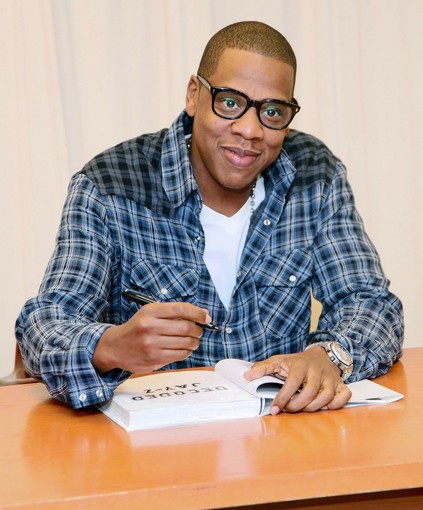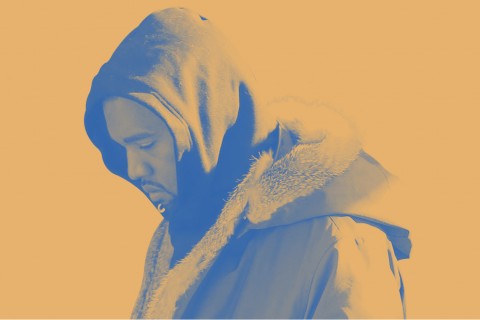
‘Doing it for the culture.’ ‘Reporting on the culture.’ ‘Buy my album and support the culture even though you’ve never heard of either me nor my music…fam!’ If you’ve ever had any of these phrases, you’ve clearly subjected yourself to Rap Twitter/Facebook or attended a live hip-hop show. Well done, here’s a cookie. These hackneyed proclamations and/or snake-oil sales pitches are but hollow rhetoric at this point – but that’s not to say that many of those pushing this particular party line don’t still believe in the validity of this claim. Many clearly do, and that may be the most disturbing and disingenuous part of the entire phenomenon.
On his latest LP, Fish ‘N Grits, fellow rap curmudgeon J-Zone sagely observed that no other genre of music encourages artists to accost people in the street to buy their music, under the flimsy excuse that this is their ‘legal hustle’. The generally accepted technique is to sell your music after a live performance, so that people can actually figure out if they ever want to share the same space as your audio musings ever again. There also seems to be a disturbing link between defenders of ‘real hip-hop’ and the dudes who carry a bag full of CD-Rs everywhere they go. Guess that darn Fake Hip-Hop better watch it’s back with these super sleuths on the case!
There’s no denying that hip-hop was a vibrant, exciting and cutting-edge culture at one point. It had respected elders, unwritten codes and a relatively unanimous understanding regarding what was hot and what was not. The Cold Crush Brothers, Run-DMC, Rakim, BDP, Public Enemy, EPMD, Ice Cube, Wu-Tang Clan – these were the accepted cutting-edge artists of their eras. While there was room for debate as to whether Big Daddy Kane or Kool G Rap were better at rapping, it was widely understood who were the elite and who were the also-rans.
As the music spread and different regions began to produce their own local stars, subgenres of rap began to emerge – if only to assist music writers to differentiate between Miami Bass and ‘Gangster Rap’ from Texas. The more the audience grew, the more that different pockets of rappers evolved to accommodate these varied segments and tastes, until it became possible that two rap fans could amass giant collections of music without sharing a single favorite. Rabid fanbases developed for groups such as Jedi Mind Tricks and Atmosphere, creating rap fans who may have had no interest in Nas or Biggie, spawning more and more specialised niches which moved further and further away from the original recipe, or ‘culture,’ if you will.
With such a sprawling and disparate range of artists, styles and fans, is there actually any unifying thread tying them all together outside of the vague ‘hip-hop’ tag? Even the flimsy divide between ‘commercial’ and ‘underground’ doesn’t matter in an era where the only performers selling over three million albums are Adele and Taylor Swift. Can collecting sneakers be considered a culture if every second person under 30 does it? If your grandmother understands the meaning of most hip-hop slang, can it still be considered a valid youth movement?
Lacking any kind of central, unifying force, how can hip-hop still be considered a culture? Since the previous standards of not biting names, beats and rhymes has been long abandoned, as has the idea of writing your own rhymes as a matter of pride. It’s basically a free-for-all that only adheres to the rules of pop music – make hits by any means necessary. Rapping over some shitty music and creating your own ‘brand’ isn’t a ‘movement’, it’s just another way to try to impress girls and score some free clothing, booze, and drugs. That’s all fine and dandy, but that hardly proves that any of this ties us all together.
The Universal Zulu Nation was once a powerful, guiding light in the rap world. When X-Clan and Boogie Down Productions were ready to start shooting at each other in the street, Afrika Bambaataa called a sit-down and got the situation under control. But as with all quasi-religious organisations, power and ego corrupts, and despite many of their disciples staying true to the core principles, its current legacy has since been tainted by members squabbling over who has the most sew-on patches on the back of their denim jacket while their founder has been ousted amidst disturbing allegations of sexual abuse.
Meanwhile, other ‘leaders’ in this culture such as Jay Z, Kanye West, and Drake are also busy being fully-fledged celebrities providing gossip for E! News and TMZ Rap Blogs. Where is this culture that we’re doing this for again? Is a culture where some segments insist that it remains stuck in the nineties to be authentic and others have no interest in anything more than two years old? A culture that burns down all that came before it, because ‘fuck the world I just want to help sell some Stussy jackets’? Rap was assimilated into popular culture a long time ago, and makes a lot of money for people who couldn’t give two fucks about whatever it is you claim to represent. The music isn’t ‘dead’ by any means, but don’t get it twisted – all that remains of hip-hop culture is another excuse to sell you some limited-edition shell toes.



